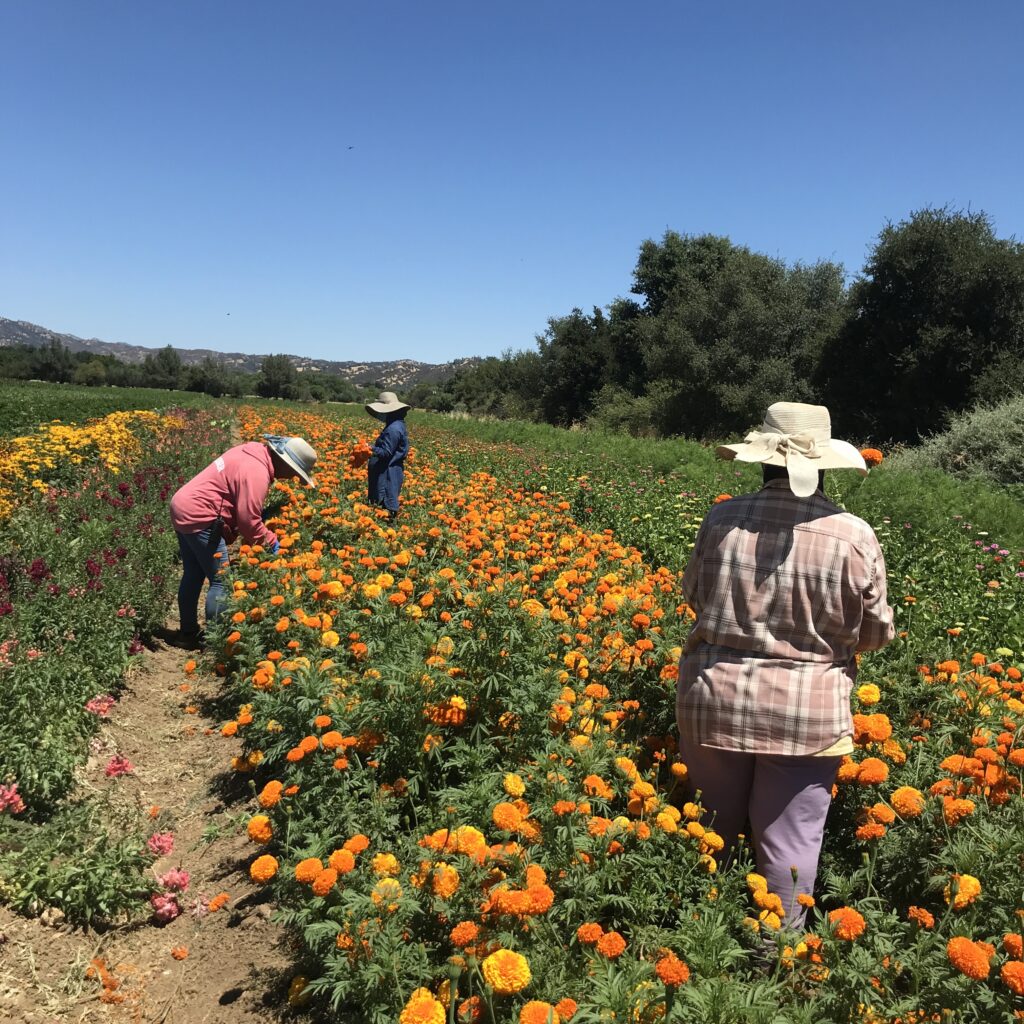
One of the many things I admire about Full Belly Farm is the commitment to work-life balance, or as much as is possible for farmers to take time away from work for family, friends, hobbies, and (occasional) travel. Included in that is just how well-read many folks are, taking time out of a busy job to read articles, periodicals, and books, and not just about farming. Feeding our minds is important too!
This time of year it’s common to see lists of summer recommended reading, perhaps good “beach reads” or just something to pick up if you’ve got a little more time. We’re hopping on the bandwagon and sharing a few short things to consider taking a look at:
1) We’re in Sunset Magazine’s current issue! They feature the farm and Hannah’s work with our flowers. Read it here! They also have a guide to make garlic braids (available here) excerpted from Hannah’s new book, Designing with Dried Flowers.
2) You’ve probably heard of Farm to Table eating, or even Farm to School or Farm to Hospital, but how about Farm to Prison? One of our local food hubs that we sell to, the Spork Food Hub in Davis, has been working with the California Department of Corrections to get more fresh fruits and vegetables from farms like ours into California prisons. Read more about it here.
3) A CSA member recently sent along a link to a digital cookbook, The Scraps Book, “dedicated to cooking with the little things we usually throw away… Scrapcooking is about finding the beautiful possibilities in that banana peel, radish top, or even the chicken bones you’re about to toss, and making the most of everything available to you.” Some of these recipes will need to wait till we have leafy greens again, but there are definitely some fun and intriguing ideas which could be helpful for your budget, the climate, and mixing things up in the kitchen. Check it out for yourself here.
Some UC Davis researchers have looked at connections between food banks and local food producers and recently published that research, which they told us about during a tour of the farm. As one of the researchers Dr. Catherine Brinkley, shared with us via email “the local food system is rapidly changing and evolving—and the COVID years were no different as we saw farms, markets, and intermediaries quickly pivot to fill orders as the more dominant food system left grocery shelves empty. As we think about local reliance to economic downturns and disruptions in the global food supply chain, understanding the local capacity of our regional food networks—particularly for the most vulnerable community members—is critical to successfully weathering such crises. For Yolo County where producers have close working ties to the food bank, the cast of ‘usual suspects’ at the heart of the local food network is leading conversations about both environmentally sound agricultural practices as well as how to end hunger.” We’re one of those “usual suspects” included in the study, though not directly cited, and are proud of the weekly donations we make to the Yolo County Food Bank. For those who are open to reading an academic piece, their work is available here.
Elaine Swiedler, CSA Manager

